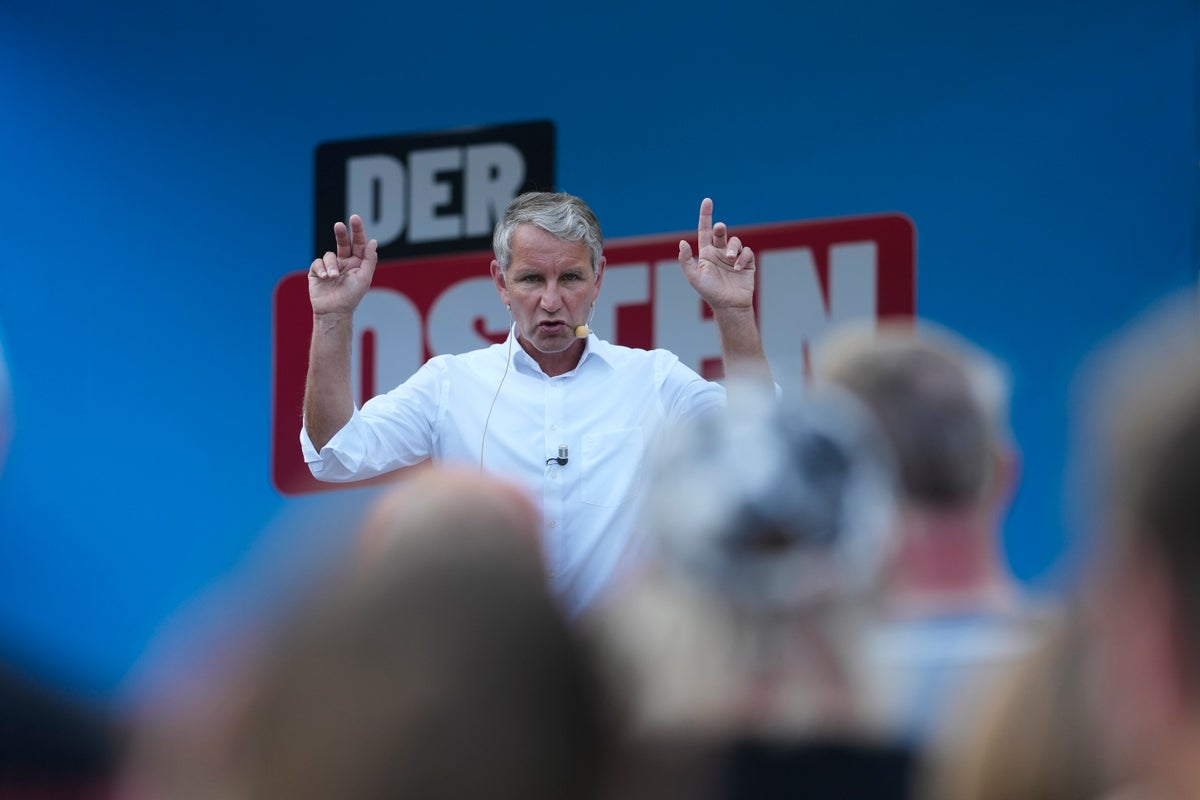
Support truly
independent journalism
Two state elections in eastern Germany Sunday offer the far-right Alternative for Germany the chance to become the strongest party for the first time and could produce painful results for the unpopular national government. A new party founded by a prominent leftist also hopes to make an immediate impact.
About 3.3 million people are eligible to vote in Saxony and nearly 1.7 million in Thuringia. Sunday's elections are being watched nervously in Berlin: While the three parties in Chancellor Olaf Scholz's governing coalition were weak there already, they risk dropping under the 5% support threshold needed to stay in the state legislatures at all.
A third election follows Sept. 22 in another eastern state, Brandenburg, currently led by Scholz's center-left Social Democrats. Germany's next national election is due in a little over a year.
Alice Weidel, a national co-leader of the anti-immigration Alternative for Germany, or AfD, has described Sunday's votes as "an important milestone for the national parliamentary election next year." The party secured its first mayoral and county government posts last year, and now says it wants to govern at state level, too.
But with polls putting AfD's support around 30% in both states, it would most likely need a coalition partner to govern, and it’s highly unlikely anyone else would agree to put it in power. Even so, its strength could make forming new state governments extremely difficult.
AfD is at its strongest in the formerly communist east, and the domestic intelligence agency has the party’s branches in both Saxony and Thuringia under official surveillance as “proven right-wing extremist” groups. Its leader in Thuringia, Björn Höcke, has been convicted of knowingly using a Nazi slogan at political events, but is appealing.
Germany’s main opposition conservative party hopes to keep AfD at bay in Saxony and Thuringia after winning the European Parliament election in June.
The Christian Democratic Union, or CDU, has led Saxony since German reunification in 1990 and is banking on incumbent governor Michael Kretschmer to push it past AfD. In Thuringia, surveys show it trailing AfD, but candidate Mario Voigt hopes to cobble together a governing coalition.
Depending how badly the parties in the national government perform, that could be very tricky. Two of those parties, Scholz's Social Democrats and the environmentalist Greens, are the junior partners in both states' outgoing governments.
Thuringia’s politics are particularly complicated because the Left Party of governor Bodo Ramelow has slumped into electoral insigificance nationally. Sahra Wagenknecht, long one of its best-known figures, left last year to form a new party — the Sahra Wagenknecht Alliance, or BSW — which is now outperforming it.
The CDU has long refused to work with the Left Party, descended from East Germany's ruling communists. It hasn't ruled out working with Wagenknecht's BSW, but that would be far from an obvious combination.
High ratings for both AfD and BSW have been fed by discontent with a national government notorious for infighting. Both are strongest in the less prosperous east.
AfD has tapped into high anti-immigration sentiment in the region. It remains to be seen whether and how last week's knife attack in the western city of Solingen in which a suspected extremist from Syria is accused of killing three people, prompting the government to announce new restrictions on knives and new measures to ease deportations, will affect Sunday's elections.
Wagenknecht’s BSW combines left-wing economic policy with an immigration-skeptic agenda. The CDU also has stepped up pressure on the national government for a tougher stance on immigration.
Germany’s stance toward Russia’s war in Ukraine is also an issue. Berlin is Ukraine’s second-biggest weapons supplier after the United States; those weapons deliveries are something both AfD and BSW oppose. Wagenknecht also has assailed a recent decision by the German government and the U.S. to begin deployments of long-range missiles to Germany in 2026.







